Hundreds of Spectrum Health patients battling COVID-19 infections have received transfusions of antibody-rich plasma donated by survivors of the virus.
The growing number of plasma donors has allowed a wider range of patients access to the therapy.
The first plasma donations, made in early April, went to critically ill patients.
“Now, there are more donors than we had in the beginning, so we are able to treat some moderately ill patients—not all of them, but a big percentage,” said Gordana Simeunovic, MD, the infectious disease specialist leading the plasma treatment effort at Spectrum Health.
Yet more donors are needed. Dr. Simeunovic encouraged those who have overcome COVID-19 or have antibodies to the novel coronavirus to consider donating their plasma.
Researchers are studying the effectiveness of the treatment, called convalescent plasma therapy.
Spectrum Health doctors worked with physicians at the Mayo Clinic, the national site for coordinating treatment access for plasma therapy, early on in the pandemic.
With tens of thousands of U.S. patients treated, the U.S. Food and Drug Administration in August issued an emergency use authorization for convalescent plasma to be used in hospitalized COVID-19 patients.
“Based on scientific evidence available, the FDA concluded this product may be effective in treating COVID-19 and that the known and potential benefits of the product outweigh the known and potential risks of the product in hospitalized COVID-19 patients,” the FDA noted in a statement about the investigational treatment.
From individual observations, Dr. Simeunovic finds the results encouraging.
“We had patients who were very sick who received plasma and, over the next few days, we would see improvement,” she said.
She also believes the therapy may work better when given early in the course of the illness.
“When we give plasma, we are hoping the antibodies will find the virus and kill the virus,” she said. “If we wait too long, the virus has already done some damage. There are inflammatory responses triggered in the organism. Killing the virus won’t actually stop the disease.”
As of Nov. 10, Versiti Blood Center of Michigan has received 2,165 convalescent plasma donations from 199 donors.
Each donation can help two to four patients, Dr. Simeunovic said.
Who can donate
The FDA allows people to donate plasma if they tested positive for COVID-19 with a diagnostic test, such as a nasopharyngeal swab, said Heidi Taylor, a Spectrum Health clinical research nurse.
Those who could not get a COVID-19 test at the time of their illness may qualify if they had a positive antibody test after recovering.
Some conditions must be met, Taylor added. For example, the antibody test must be one that has received emergency use authorization from the Food and Drug Administration, such as the two-step test offered by Spectrum Health.
To get an antibody test, potential donors may contact their primary care provider for an order.
Also, donors must be eligible to donate blood and must have no sign of symptoms at least 14 days before the donation. A negative test result for COVID-19 is not necessary.
Anyone interested in donating plasma should refer to the Versiti website for information on how to help.
Spectrum Health is contacting patients who tested positive for COVID-19 to ask them to consider donating plasma after they have recovered from the infection.
The response has been heartwarming, Taylor said.
“Many of these people have been through a lot. They were very ill themselves. And some lost family members,” she said. “But they were still willing to listen and think about a donation.
“It gives you a lot of pride in the community.”
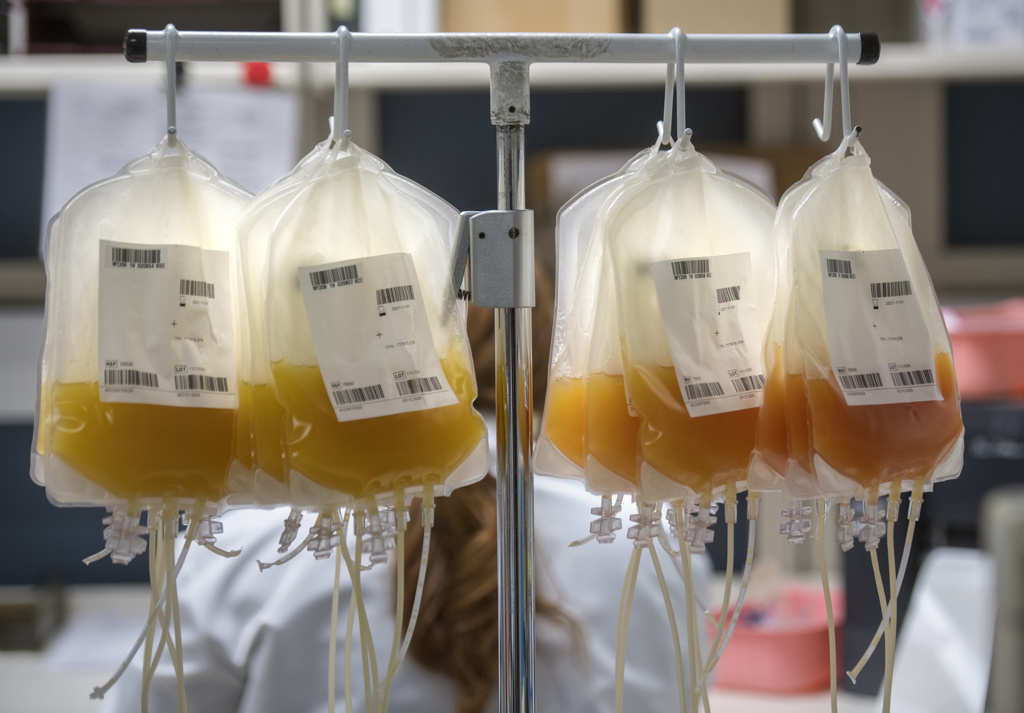

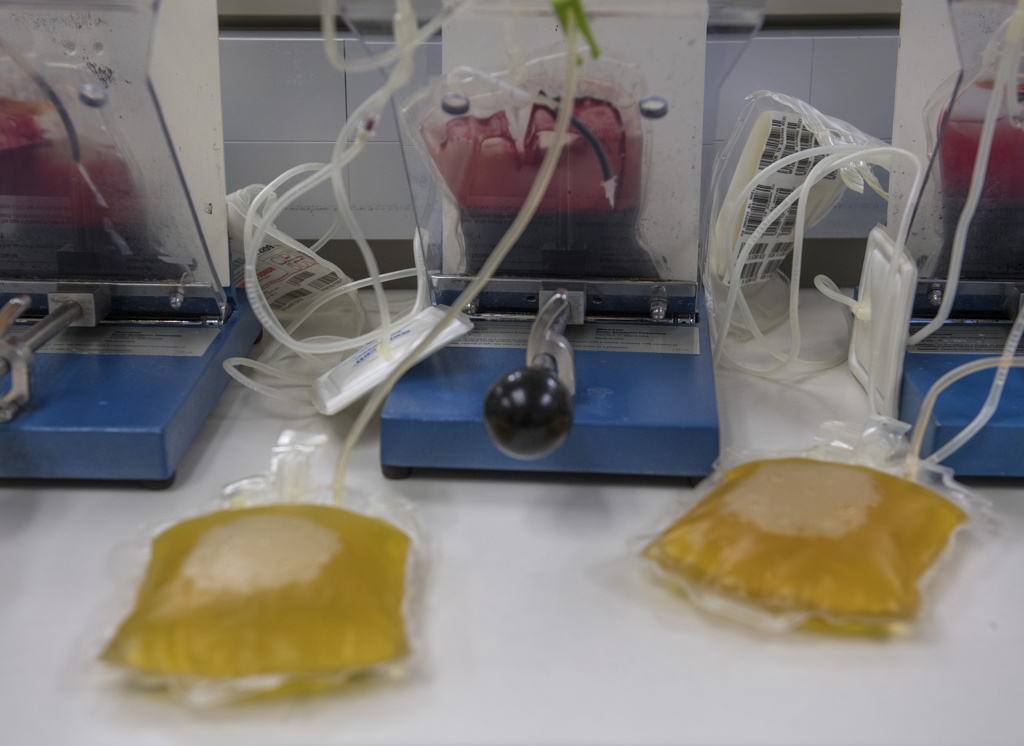
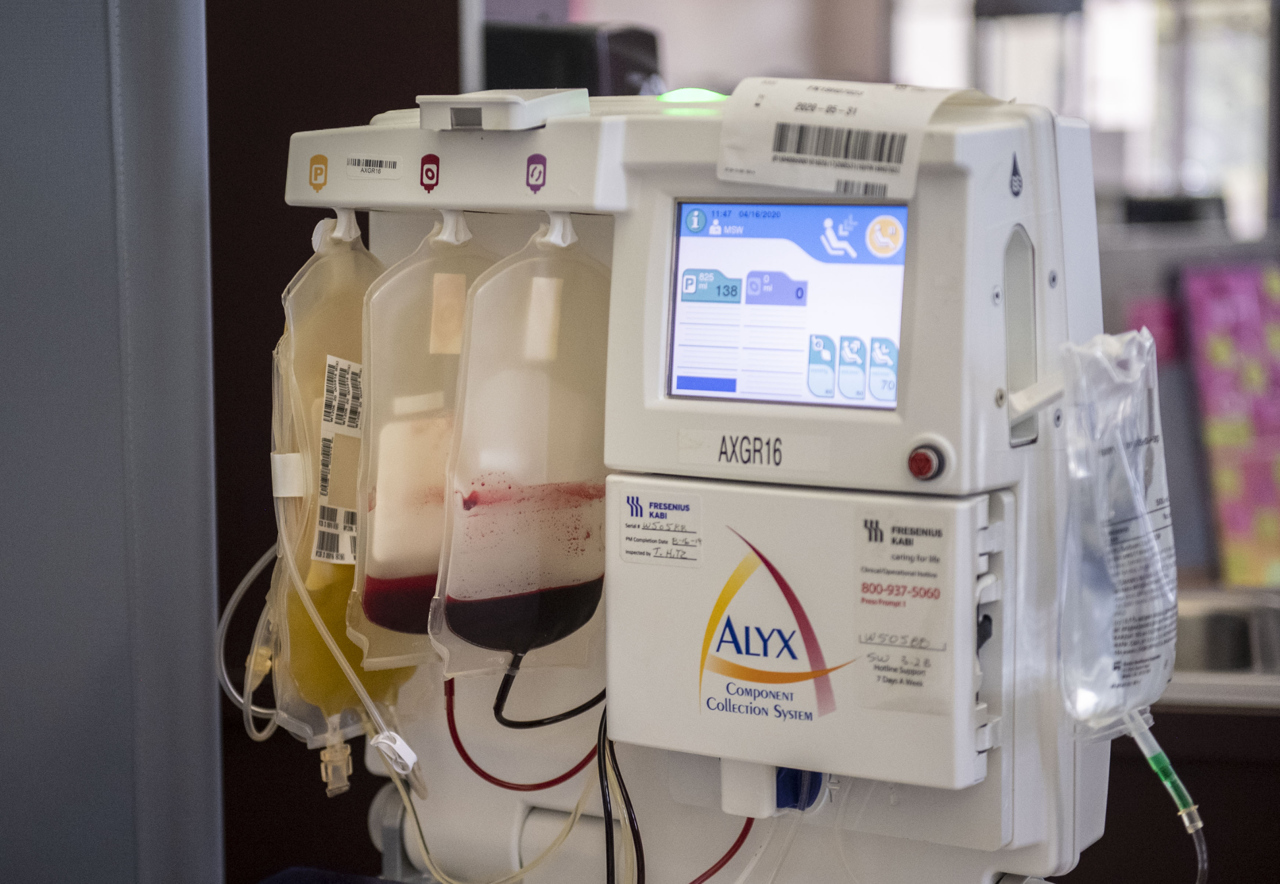
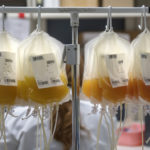
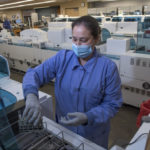
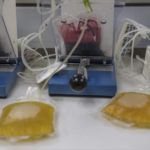
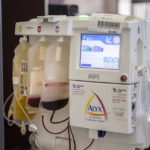

 /a>
/a>
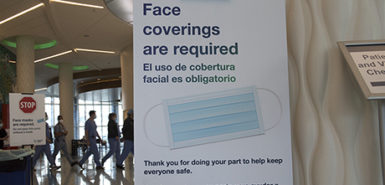 /a>
/a>
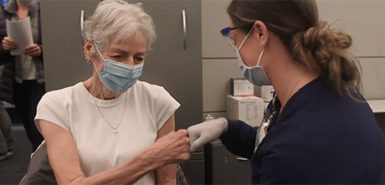 /a>
/a>
Is there a age limit to who can give Plasma?
According to Versiti’s website, plasma donors must meet the same criteria as blood donors. In some states, including Michigan, 16-year-olds may donate with signed consent of a parent or guardian. Those 17 and older do not require the signed consent.
Details on Versiti’s requirements are found here:
https://www.versiti.org/faq/blood-donation-faq
I hope this helps!
Can an antibody test be given if you do not know if you’ve had COVID?
Yes, you’ll need to get an order for an antibody test from your physician. Then it’s a quick blood lab draw. Here’s some information on testing that could help you – https://www.spectrumhealth.org/covid19/spectrum-health-app-screening. Thank you for helping!